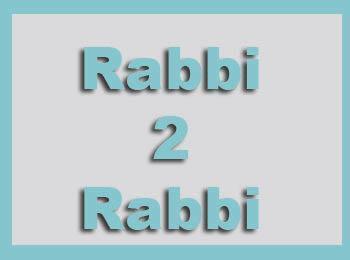Where do we draw the line between gossip and slander, and calling out misdeeds? Perhaps the answer lies in a return to the fundamentals of humility.
Rabbi Avi Finegold
Founder, The Jewish Learning Library, Montreal
Rabbi PHILIP Scheim
Beth David B'nai Israel Beth Am Congregation, Toronto
Rabbi Scheim: We are currently confronting an over-abundance of bad behaviour. From the rabbinic world to media personalities, from parliamentarians to renowned celebrities, stories of abusive sexual and interpersonal conduct have been filling the front pages of our media.
On one level, we are gratified that victims of abuse and assault are finding the courage to confront their perpetrators. Nobody should be able to hide immoral and potentially criminal behaviour behind the mask of celebrity or power – or even worse, religious authority.
But we must also be mindful of our tradition’s concern with lashon hara – gossip and slander – and recognize the ease with which one’s reputation can be damaged, or even irrevocably destroyed, by accusations that have not yet been subject to judicial process.
Where do we draw the line between calling out terrible behaviour and exercising restraint?
Rabbi Finegold: It’s a fine line. Lashon hara, though, is not a tool designed to protect the guilty.
We need to create an environment where victims do not feel ashamed to speak out. At the same time, we must remind our communities not to be back-seat drivers to the judicial process.
This latter point is far more damaging in the long term, in my view, because not only does the alleged crime get blown up to epic proportions by people who know few, if any, relevant facts, it also puts the victim in the spotlight repeatedly, which might prevent future reporting of similar or related incidents. I wonder how we might change the tenor of social discussions of pending cases if we only say things we would be willing to say directly to the alleged perpetrator.
Emmanuel Levinas speaks of the face of the other as the beginning of ethics – facing the other is akin to facing the humanity of the other and recognizing one’s social obligation to the other. I think of this when I hear rabbis denounce others in different denominations for not being authentic Jews. Would they be able to walk up to someone, look them in the eye, and say, “You are not an authentic Jew because you pray in a congregation that gives women aliyot”?
Perhaps a reminder that believing someone is guilty does not rob them of humanity would be a good first step.
Rabbi Scheim: Face-to-face encounters would definitely prevent some of the terrible behaviours that occur behind the veil of anonymity. The incredibly vicious comments on online news sites would rarely be presented in so cruel a fashion were the writer not able to hide behind a pseudonym and a computer screen.
Perhaps what is needed in this age of terrible celebrity behaviour is a return to the fundamentals of humility. Moses is described by our Torah as “the most humble person in the world,” and today’s mighty and powerful might follow his example and refuse to allow their celebrity to overcome their humanity.
Several years back, Rabbi Aaron Lichtenstein visited a Jerusalem synagogue. A friend in attendance shared with me his shock when the great scholar was given the honour of ptichah (opening the Ark). Obviously, the gabbai must have not recognized Rabbi Lichtenstein, for someone of his stature would have merited a much more major Torah honour. But Rabbi Lichtenstein happily opened the Ark and wasn’t the least bit troubled by being treated as “one of the people.” Clearly he understood, as did Moses, that greatness and humility are not mutually exclusive.
Rabbi Finegold: It is unfortunate, but many celebrities – rabbinic or otherwise – choose to exploit their fame rather than channel it toward something more positive.
Maimonides advises that a person who has a tendency toward bloodshed should gravitate toward shchitah (the practice of ritual slaughter) so as to not sublimate something that might be harmful to them and others. Similarly, he says that one who is drawn toward theft should become a tax collector and thereby take other people’s property in a legal and acceptable manner. Perhaps we need to ask ourselves why we became rabbis, and find ways to negate any excessive sense of self-importance.
Lashon hara, on the other hand, seem to be much more pervasive. Perhaps we need a collective brainstorm to figure out how to channel into something productive, instead of gossiping among ourselves in the pews.
